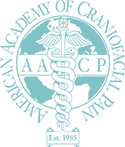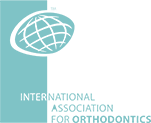TMJ disorder is often misunderstood, misdiagnosed, and mistreated. It is so important to our doctor and staff at TMJ Therapy in American Fork, Riverton and North Ogden, Utah, to help educate patients and doctors on this painful condition. We are ready and dedicated to provide treatment for TMJ disorder; please call now and make an appointment with our office today!
What is TMJ?
Many patients, physicians, and insurance companies use the term TMJ, but what does it mean? TMJ stands for temporal mandibular joint, or the jaw joint. When you hear the word TMJ used by a doctor or dentist to describe a painful condition, it is actually TMD, or a temporal mandibular disorder. The TMJ is formed from the temporal bone of the skull to the lower jaw or mandible. There is one on each side of the face just in front of the ear. It helps with chewing, talking, or swallowing. The TMJ is actually a sliding joint, not a ball and socket like your shoulder. This sliding allows us to distribute pressure placed on the jaw throughout the joint and not just in one area.
It is important to know the joint function and autonomy to gain an understanding of how it can be injured or damaged. Between the temporal bone and lower jaw there is a small disc made of cartilage and acts as a third bone for the TMJ. Because this disc is attached to a muscle, it moves with the TMJ. Also, the nerve to the TMJ is a branch of the trigeminal nerve, so if an injury to the TMJ occurs, it can also affect this nerve branch causing referral pain. The referral pain can be anything from headaches, jaw, ear, sinus, or neck pain. The jaw joint is also held together by a series of ligaments, any of which can be damaged, like any other joint in the body.
Damage to the TMJ ligaments can result in a dislocation of the disc, lower jaw, or both. Muscles that are also closely connected to the jaw are the temporalis and masseter. Injury to these muscles can result in painful jaw and abnormal movement. A TMJ disorder can be often quite painful, debilitating, and frustrating. That is why it is important to us at TMJ Therapy to help educate people and clinicians about this condition and the treatments for it.
If you suspect you may have a painful or damaged TMJ, Dr. Carl McMillan and our team invite you to click on the box “Do I Have TMJ?” to see more examples of TMJ symptoms and find the ones that relate to your situation. Once you have checked all of the appropriate symptoms, we encourage you to visit our doctor at TMJ Therapy. If needed, we would be happy to provide you with personalized TMJ treatment in American Fork, Utah, as well as North Ogden and Riverton.





